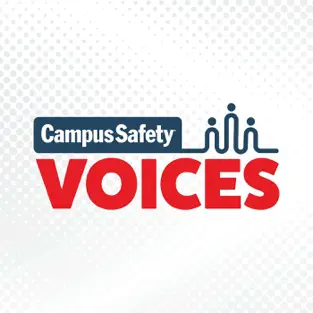Following the murder of George Floyd, police departments across the country conducted internal reviews to ensure leading practices were being followed. While looking inward is extremely important, internal reviews come with bias. Real, systemic change has been made by those that looked outward, absorbing input from the people they serve.
In Bethlehem, Pennsylvania, shortly after Floyd’s death, Lehigh University leadership met to discuss ways it could not only improve its policies and procedures to ensure something so tragic and avoidable never happens on its campus but to also become an actively anti-racist school.
“In order to have any legitimate discussion about becoming an anti-racist institution, we need to have a review of our police department,” said Leigh Chief of Police and 2023 Campus Safety Director of the Year finalist Jason Schiffer. “I felt very confident in our department and what we were doing but I wanted to make sure our actions didn’t have unintended consequences for the communities we’re serving. I feel confident that we don’t have overtly racist policies — that we know the way we are interacting with the community isn’t outwardly discriminatory — yet there could be things that we are doing that have an impact on our community that we don’t even really see, all blindspots to those areas.”
[promo_content slug=”2023-doy-winner-announced-at-csc”]
To help find those blind spots, Schiffer established the Lehigh University Police Department Review Committee whose members were selected by the vice president of the school’s Office of Equity and Inclusion (11:08). Members include the director of the Office of Multicultural Affairs as well as a variety of staff, faculty, and graduate and undergraduate students.
Schiffer gave the committee full access to the department, sharing policies, procedures, and data from interactions with the community. The committee also conducted interviews with officers and held listening sessions so members of the community could share about their interactions with campus police. As a result, both the department’s sexual violence policy and its use-of-force policy were rewritten.
The revamped sexual violence policy was developed in conjunction with the heads of Lehigh’s Gender Violence Education & Support offices. One of the main goals of the new trauma-informed policy is to ensure law enforcement is not revictimizing individuals who report gender violence.
As for the use-of-force policy, Schiffer redrafted it using a “community standard approach.”
“There’s a gap between what our laws and our Constitution have deemed to be an acceptable use of force and what our communities have expressed is an acceptable use of force,” he said. “We took all that we learned from the listening sessions and incorporated a lot of that into our policies and training as well.”
While it is essential to address potentially discriminatory policing that may negatively impact communities served, it is also important to address how policies that govern internal department operations may be discriminatory as well.
“I thought we had a fairly progressive grooming policy for our officers, but this process opened my eyes to see there were things in our policies that were restrictive and really didn’t need to be in there. A lot of gender-based restrictions with hair length and things like makeup, nail polish, and hairstyles,” said Schiffer. “We have since adopted a viewpoint that if it’s not a safety issue for an officer or someone else, there should be no restriction on it. The end goal is to be able to attract and retain officers from a much wider, much more diverse pool of candidates.”
In this interview, Schiffer also discussed:
- How and why he completely revamped the department’s mission statement with the main focus being student success (1:51)
- Positive outcomes that have stemmed from focusing on student success (7:28)
- How previously serving as a practicing trial attorney has helped him succeed in his current role (9:01)
Watch the full interview here or listen on the go on Apple or Spotify.









